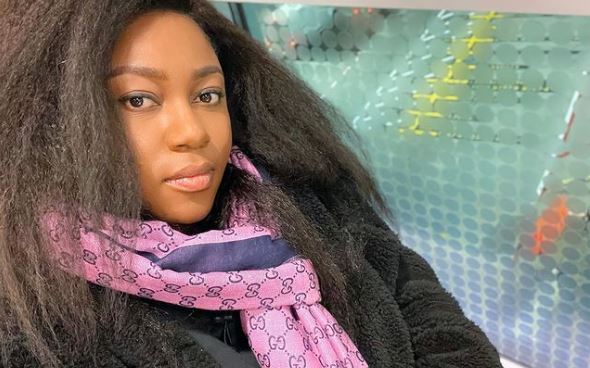
Linus Idahosa’s shirt is drenched with tears. The tears are not his own; they belong to a few of the 400 students that have just concluded a one month film programme in conjunction with the New York Film Academy. They are not tears of angst or annoyance. They are tears of appreciation and gratitude.
Idahosa is the CEO of Del York International Ltd and tonight is the culmination of an eight month labour of love. Over 400 students have successfully completed the four week programme to develop and improve their filmmaking skills. This is not just an acting class; the spectrum of available courses includes production, editing, cinematography and screenwriting. To aid in delivering world class instruction, DelYork enlisted the help of the New York Film Academy, one of the most reputable film schools in the world. The task, to convince and implement a move that saw 36 instructors cross the Atlantic, was not an easy one.
“I was deep in negotiations with the NYFA when the Abdulmutallab thing happened,” Idahosa says. ” At that point they were not comfortable with sending so many of their people to Nigeria so I had to do a lot of convincing.”
Lights, guns, action
Even after the NYFA provisionally agreed to supply equipment and staff, the next big task was getting them over to Nigeria.
Another major undertaking was identifying and mobilising the 400 odd students that would participate in the film project. For this, Del York turned to the restive Niger Delta region.
“The Niger-Delta crisis has been a major talking point locally and internationally,” Idahosa says. “The biggest problem these guys have is there are no alternatives for them so what do they do? They pick up a gun. Here we are giving people the option of picking up a camera instead.”
Idahosa enlisted the help of several state governments in a bid to encourage ex-militants and unemployed youth to be part of the programme.
“We had great support from the Rivers State governor, Amaechi, who instantly pledged to sponsor 120 students,” he says.
“By the time the managing director of the Niger Delta Development commission sponsored another 250 students, we knew we were on [our] way.”
In spite of the government support, Idahosa is quick to point out that the DelYork/NYFA partnership is privately backed.
“Yes we had some help from government sources but the concept and implementation was wholly by Del York.”
Hollywood pedigree
The resumes of the film instructors are impressive. Ross Novie, who taught the production class, has been an assistant director on several well known TV shows such as Arrested Development, The Office and Entourage.
Adding star power to the Del York project is Stephanie Okereke, the Nollywood actress.
“Stephanie is an executive director with us,” Idahosa says. “She is an alumnus of the NYFA and is very passionate about film. I could think of no better person to join forces with.”
Bright lights, bright prospects
To safeguard against participants returning to idleness and inactivity, Del York has put a support network in place.
“We have created a database which contains a [details] of all the people that took part in this programme,” Idahosa says.
“This ensures that nobody is left behind. We will contact and update them on all future projects that we engage in.”
Some of the students have already caught the eye of film producers and casting directors. The BBC is one of the numerous visitors to the Public Service Institute in Abuja where the classes took place. A prospective meeting turned into a full blown audition for cast members for an upcoming movie ‘12.30′.
Ewor Agbor Daniel, one of four students chosen for the film, will play the lead. Prior to the programme, Ewor had never had any acting experience.
“What has happened in these past few weeks has been amazing,” he says. “I have never acted before but always dreamed about appearing in a Hollywood movie. Aside from acting, the most fascinating experience has been meeting so many diverse people with different backgrounds.”
According to Ross Novie, a vast majority of the students across the disciplines had no prior experience.
“I would say in my production class, maybe about ten percent of the guys had picked up a camera before,” he says. “It’s not like being in New York or LA, some of these guys are very raw but have so much willingness to learn.”
Poor acting has, for a long time, been identified as one of the main Achilles heels of the Nollywood industry. William Schneider, one of the acting coaches, disagrees however.
“There is as much talent here as there is anywhere,” he says. “The main drawback people have is a lack of exposure. They try to emulate what they see on the screens here. What they need to do is to look within themselves to seek characterisation. There is no limit to their potential.”
In spite of the obvious prospects of the budding filmmakers, Idahosa is convinced that there is much more that can be done for the graduating students.
“We have had terrific support from various individuals and organisations,” he says.
“Unfortunately there were many pledges made that were not fulfilled. A large proportion of these guys are from the Niger-Delta and people keep talking about meaningful post-amnesty programmes.
“Here we are presenting an opportunity that means these guys will not return to kidnapping, bunkering and piracy. Yet some of the stakeholders are not assisting us.
“Each of these students should be walking away with a Mac laptop. I hope that in future projects we will be able to help the students with the basic tools to assist their development.”
Cut
As the curtain comes down on the four-week programme, Idahosa’s tears have now joined those of the graduating class.
“It was an emotional night,” says Israel Edjeren, a media consultant of Del York. “Nobody wanted this thing to end even the instructors, some of whom have never been to Nigeria before.”
A huge sum of money has been invested in the project and in spite of the broken promises and logistical nightmares; the CEO is not dissuaded from embarking on future ventures.
“When you believe enough in something the money will always come,” he says. “We had originally hoped to do Lagos around the same time but it has not worked out this time around. We hope that by the end of the year we can bring the same thing to Lagos.
“The time for talking is over and we need to be the change we want to see in the world. We can, we must, we will. That’s the motto here and it is what keeps us driving forward.”
By Terfa Tilley-Gyado/nigeriafilms.cm

















